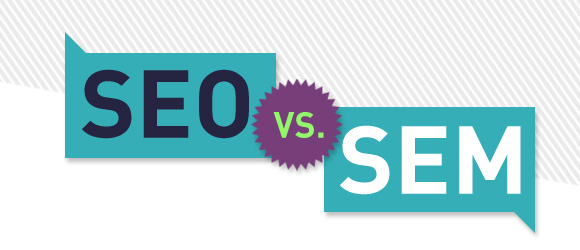SEM vs. SEO: Which Do You Need?
markjoshuas00 October 20, 2017Search engine marketing (SEM) and search engine optimization (SEO) can be two confusing concepts to grasp. The fact that SEM and SEO are used interchangeably is not helping as well. Hence, marketers who are new to digital marketing, business owners who are trying to penetrate the online landscape and even individuals working for a web development company who are finding ways to upskill.
For those who have no idea what SEM or SEO is, a good starting point to get to know the two is here. What are the differences? Which one do you need? Is it possible to do SEO without doing SEM? These questions are answered below.
A closer look at SEO
SEO is actually a part of SEM although both strategies aim at increasing a website’s visibility in search engines especially Google. From the name itself, SEO is all about optimizing a website to get better rankings in search engine results pages (SERPs). Generating organic traffic is the goal since search engines understand a well-optimized site. With this, the chances of showing and ranking higher in SERPs will increase.
On-page and off-page SEO
SEO is divided into two pillars namely On-page and off-page. The former is the more technical aspect of SEO, with rules applicable to your site (landing page level) to make it more SEO-friendly. Some examples are the meta tags from the title down to h1 and h2 headings. Speed and image optimization are also covered in this area.
Off-page SEO is the link building aspect wherein you try to get more votes from external sites so you can increase the site’s trustworthiness, at least in the eyes of Google. Google has several (about two hundred) ranking factors and signals although it won’t divulge what those factors are. The most obvious of which, however, are mobile-friendliness, speed and security.
To put things in perspective, the results of on-page SEO are what makes the website worthy of the outcomes (earned links) of off-page SEO. They are always connected.
A closer look at SEM
While SEM is just a sub-set of a holistic digital marketing campaign, it covers a much broader scale. SEM also involves other methods such as pay-per-click (PPC) advertising. In essence, SEM also takes into account buying advertising space in the SERPs for the traffic. You pay Google, through Google AdWords so your ad will appear in front of the searches.
For some, this is more profitable because the traffic is highly targeted. Come to think of it, a user will not click on the ad unless he or she is specifically looking for that brand, product or service. With this, conversion is more likely.
Do you need SEO or SEM?
As already mentioned, ranking, traffic, and conversion are the three most important factors for any online business. While many marketers debate which digital strategy is better, the thing is any business needs to consider SEM as a whole for both organic and paid traffic. After all, SEM cannot succeed without SEO, especially organic traffic.
There may be instances when PPC makes more sense compared to organic SEO. For example, it would be strategic to favor paid traffic when launching a new site since the goal is obtaining immediate visibility. However, even when this is the case, it would be unwise to leave everything to PPC. You still need to do organic SEO. Why? It’s because the results are longer-lasting and more favorable in the long run. Did you know that for every ad click, an organic listing rakes in seven to eight clicks?
True enough, the results are not that immediate (compared to PCC). Hence, SEO can be considered as a work in progress. One good thing about this is decreasing the organic SEO budget eventually. Initially, you may go full blown on-page and off-page SEO including content writing and link building, respectively, that require working hours.
Once you’ve established search visibility (authoritative or influencer status) you may gradually decrease the cost intended for organic SEO. In the end, it will be less costly compared to PPC. Also, the latter can give you the credibility that PPC cannot provide. Evidently, solid SEM and SEO strategies must work together seamlessly so both may cover each other’s weaknesses while maximizing each strategy’s strong points.
Bottom-line, when choosing which one between the two, make sure you understand your needs first. Where are you at the digital campaign? Are you launching a new product or service? Have you recently redesigned your site? Your answers to these questions will affect how your choice whether it’d be SEM or SEO. Understand the differences first before you can understand which suits your business better. Then, determine how you will identify the efforts and at what budget threshold. With all these, it’s easier to choose which one do you actually need.



